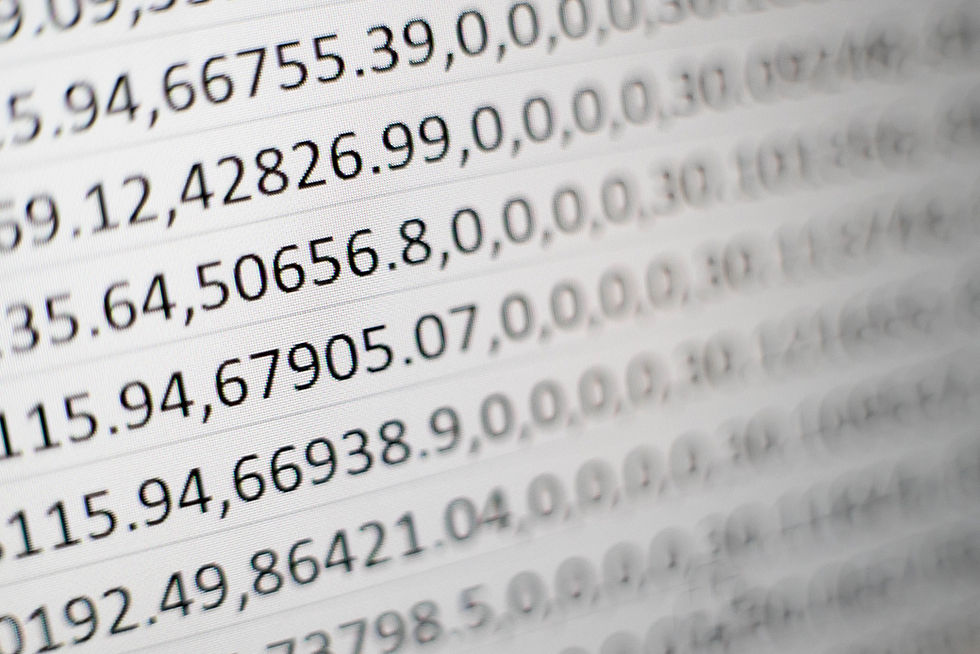Numerology
- TheSecretOfLife
- Jun 6, 2021
- 3 min read

You can get your personalized NumerologyForecast here.
The belief in a divine or supernatural link between a number and one or more co-occurring occurrences is known as numerology. It also includes the investigation of the numerical value of letters in words, names, and concepts. It's frequently linked to the paranormal, alongside astrology and divinatory arts.
Although the history of numerological concepts begun long time ago, the term "numerology" does not appear in the English language until around 1907.
Even though they do not practice conventional numerology, persons who believe in numerical patterns and make pseudoscientific interpretations from them are referred to as numerologists. For example, mathematician Underwood Dudley uses the word in his 1997 book Numerology: Or What Pythagoras Wrought to describe practitioners of the Elliott wave theory of stock market research.
History
Pythagoras and other philosophers of the period felt that mathematical conceptions had more "actuality" than physical ones since they were more "practical" (easier to govern and classify). "Numbers are the Universal language supplied by the divine to humanity as assurance of the truth," declared St. Augustine of Hippo (AD 354–430). He, like Pythagoras, thought that everything has numerical links, and that it was up to the mind to discover and analyze these correlations, or to have them revealed by divine grace.
Following the First Council of Nicaea in 325 AD, deviations from the official church's teachings were designated as civil offences throughout the Roman Empire. Numerology, along with astrology and other kinds of divination and "magic," was allocated to the area of forbidden beliefs by the Christian authorities of the time. [requires citation] Despite this theological purge, the spiritual value given to the formerly "holy" numbers remained; Dorotheus of Gaza identified and examined various numbers, including the "Jesus number." In traditional Greek Orthodox communities, numerology was still used.
In the Bible, for example, the numbers 3 and 7 have significant spiritual significance. The creation of the world in seven days is the most prominent example. Jesus prayed God three times if he might avert crucifixion before being killed at 3 p.m. Famines and other God-ordained catastrophes last seven years, and the number seven is often followed by the number eight as a sign of change.
Some alchemical theories were linked to numerology in some way. Jabir ibn Hayyan, a Persian-Arab alchemist, for example, structured his experiments in a complex numerology based on Arabic chemical names.
In Sir Thomas Browne's 1658 literary Discourse The Garden of Cyrus, numerology is significant. The author aims to explain that the number five and the related Quincunx pattern may be found in the arts, in design, and in nature – notably botany – across the book's pages.
Numerology as we know it today has a number of precursors. Mrs. L. Dow Balliett blended Pythagoras' work with Biblical references at the turn of the twentieth century, according to Ruth A. Drayer's book, Numerology, The Power in Numbers. Juno Jordan, a student of Balliett's, published "The Romance in Your Name" in 1965, which provided a system for identifying what he called key numerological influences in names and birth dates that is still used today, helping numerology become the system known today as Pythagorean numerology (despite the fact that Pythagoras himself had nothing to do with the system).
Florence Campbell (1931),[8] Lynn Buess (1978), Mark Gruner (1979), Faith Javane and Dusty Bunker (1979), and Kathleen Roquemore (1985) all advanced on the use of numerology for evaluating personality or events. Numerology may be used in a variety of ways according to the many schools of numerology.
You can get your personalized Numerology Forecast here.
Comments